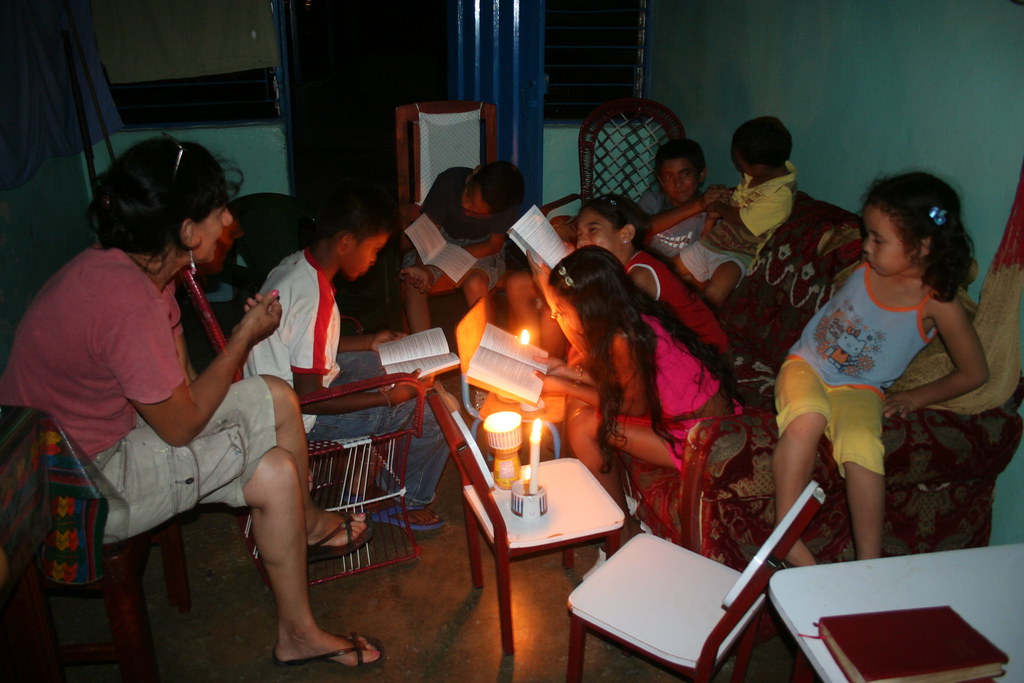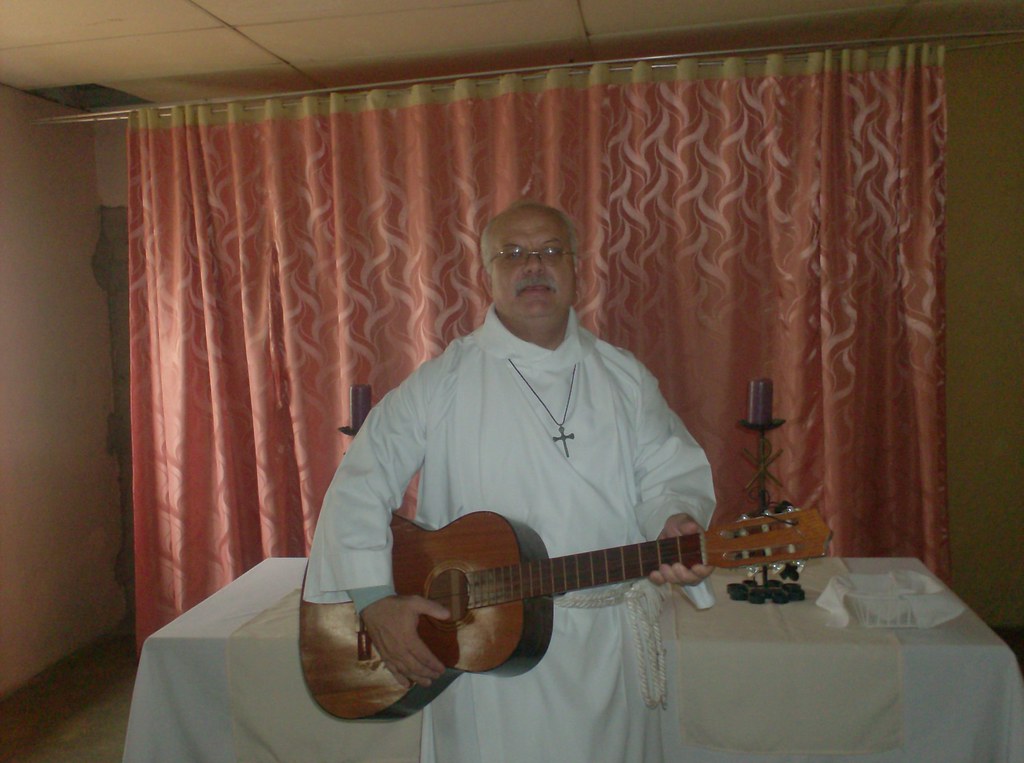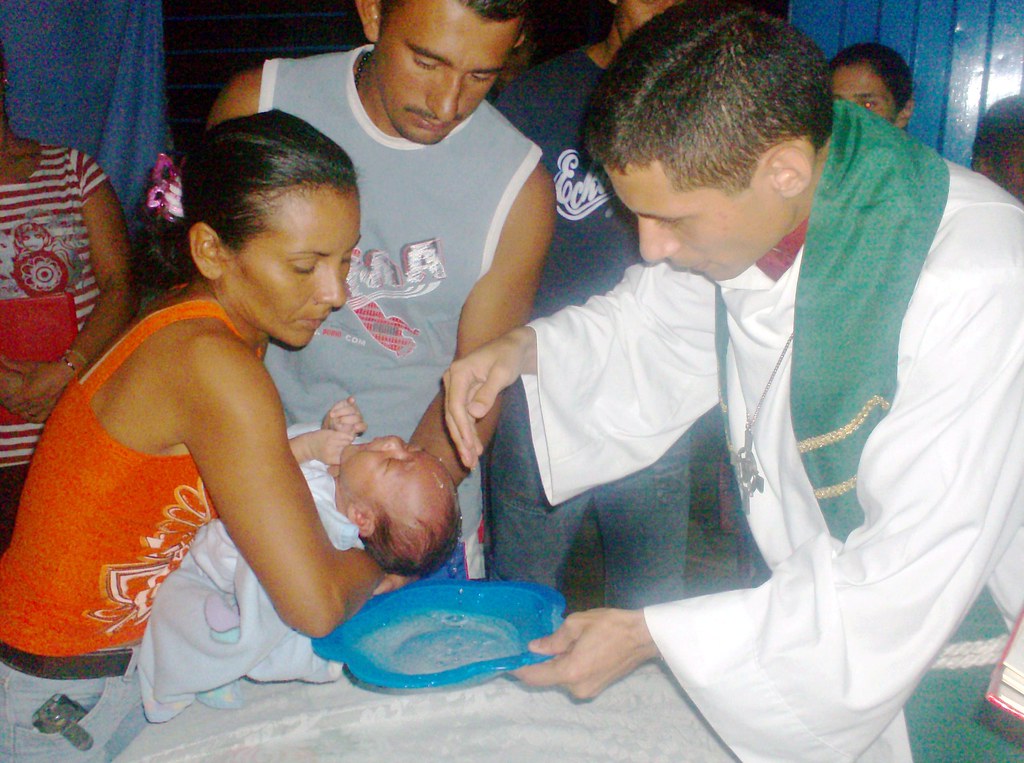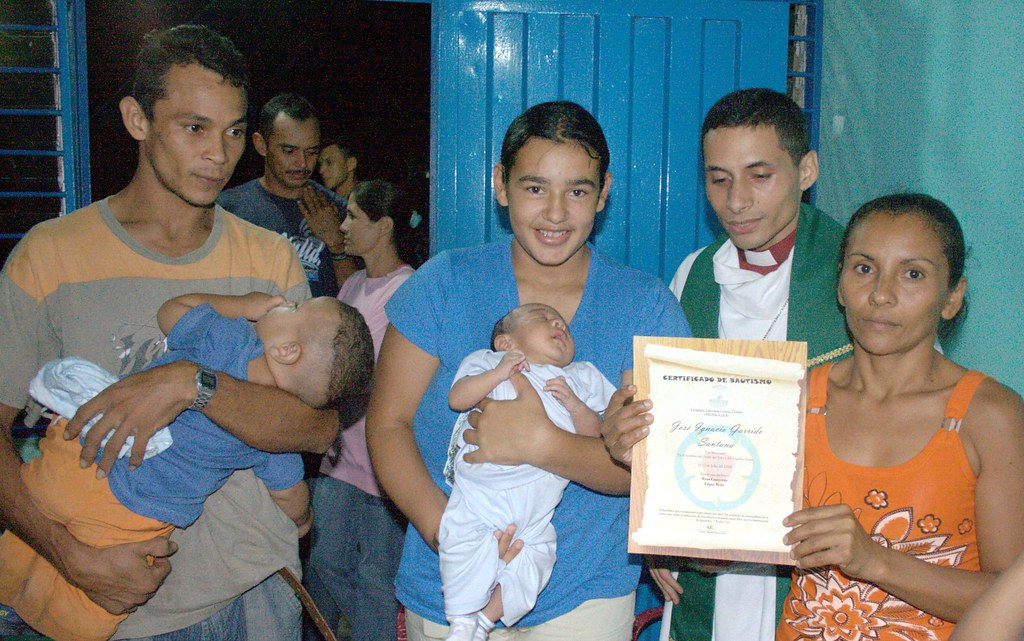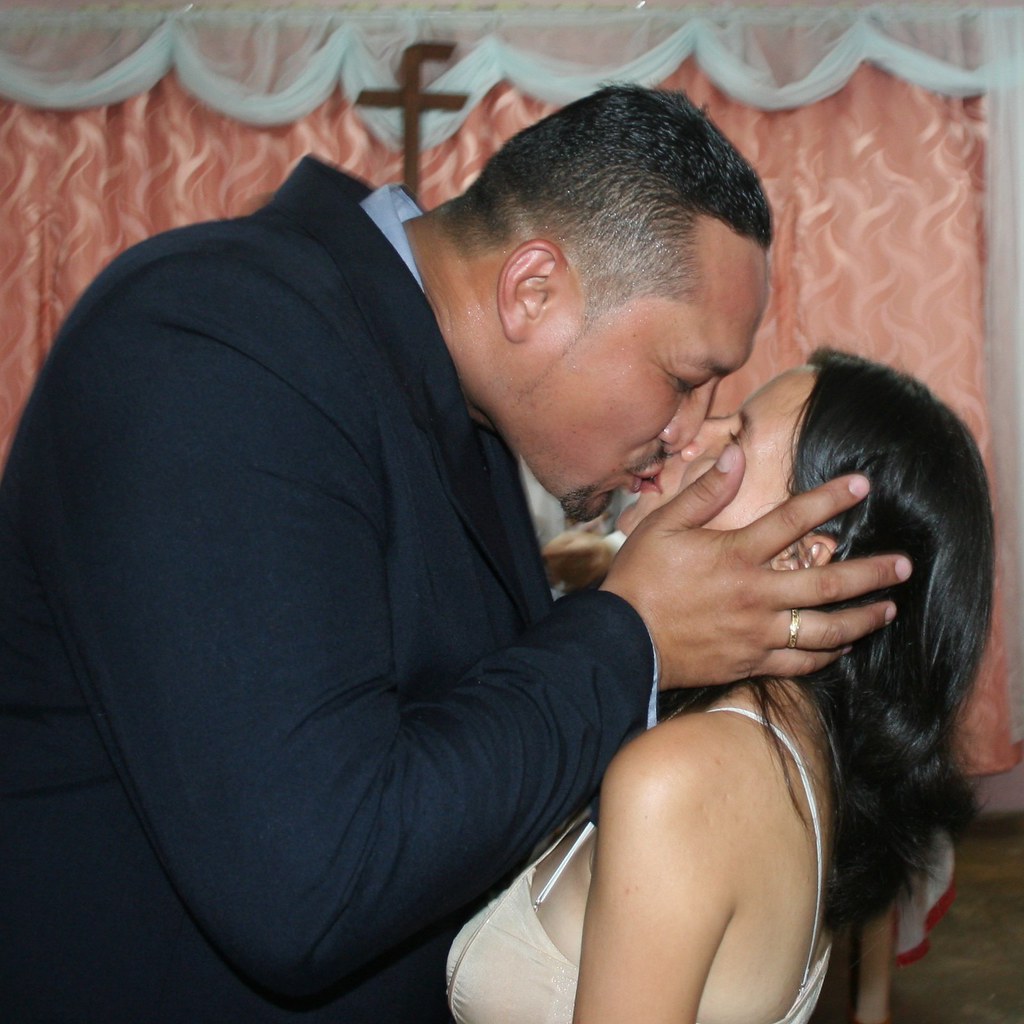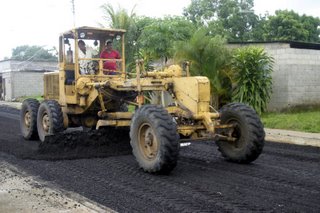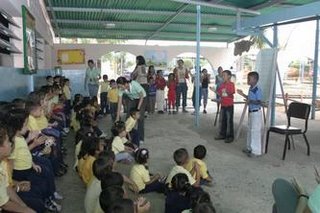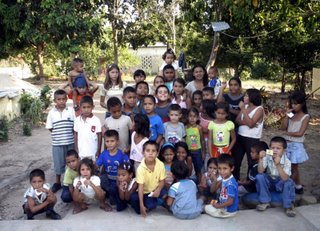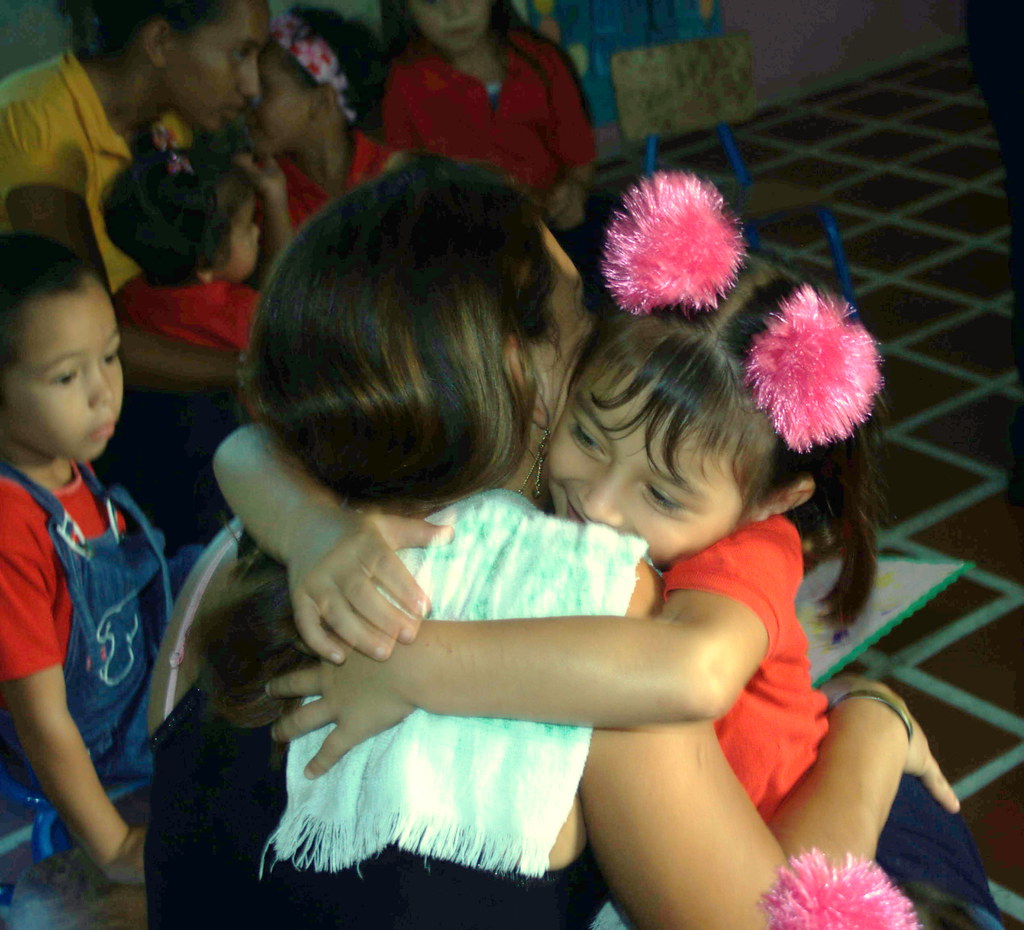 The timing worked out very well as our study of the sixth day coincided with the celebration of a Venezuelan holiday called "el Día del Abrazo en Familia" or roughly translated "Family Hug Day". I had explained to the children that on the sixth day God not only created the human race, but also instituted marriage as a lifelong union between one man and one woman, so that every child would have his or her own mother and father. I repeated this lesson for the sake of family members who were present for el Día del Abrazo en Familia in the preschool November 7.
The timing worked out very well as our study of the sixth day coincided with the celebration of a Venezuelan holiday called "el Día del Abrazo en Familia" or roughly translated "Family Hug Day". I had explained to the children that on the sixth day God not only created the human race, but also instituted marriage as a lifelong union between one man and one woman, so that every child would have his or her own mother and father. I repeated this lesson for the sake of family members who were present for el Día del Abrazo en Familia in the preschool November 7.That same week one of the cable television channels began running "The Sixth Day", a 2000 movie starring Arnold Schwarzenegger. It dealt with the cloning of humans and raised questions about humans tampering with God's design, not on the most profound intellectual level (being, after all, an Arnold Schwarzenegger action flick), but still on a level above that of preschool children. We know from our Sunday school, however, that as these children get older, what they come to believe regarding the origin of human life (both in the beginning and in our time) will affect their views of the sanctity of human life and the institution of marriage.
I did not have to think about these issues very much until I was attending a state university. I thank God that at the time I had had early instruction in the Scriptures and the opportunity to:
- Read "The Abolition of Man" and "That Hideous Strength" by C.S. Lewis.
- Attend Dr. Stephen Tramel's "Bio-ethics" course. I also have found Dr. Tramel's courses in "General Logic" and "American Philosophy" to have been invaluable in my own search for truth, especially our study of William James. I had read "Varieties of Religious Experience", James' landmark study of religious faith as a psychological phenomenon, before taking Dr. Tramel's course, but our text for the course, James' "Will to Believe" also played a key role in the development of my thinking.
The following week we talked about how and why God rested on the seventh day. Not that God needed to sleep, or even sit for a spell, but rather the seventh day signified that His original work of creation was perfect and complete. On the seventh day God evaluated His own work and judged that it needed nothing more. Thus on Mount Sinai God gave the command for His people to praise Him for the glory of His creation and all His good gifts on the seventh day. That day was Saturday in the Old Testament, but as New Testament believers we worship God on Sunday, the day that Christ rose from the dead.
This is because in Christ God began His new creation. The old creation was marred by sin and death through the disobedience of Adam and Eve, but the new life that the Holy Spirit has kindled in us through baptism will one day redeem all of the original creation (which did not rebel against God of its own will) from evil (Romans 8:18-22).
This meditation helped me prepare the sermon for Sunday, November 9, which on the Lutheran Church of Venezuela calendar was the Sunday of the Fulfilment, when belivers contemplate the Second Coming and final victory of Jesus Christ. The sermon text was Matthew 25:31-46, also known as the parable of the sheep and the goats.
I mentioned in the sermon that I had told the preschool children that God created the sun, the moon and the stars on the fourth day to separate the day from the night and help us track the passage of time. Then I had asked why we should be concerned with the passage of time. One girl replied, "So we know when our preschool begins."
That certainly is true, but a more comprehensive answer that we all have a limited amount of time on this earth, which itself is continually changing. The seasons pass, kingdoms and empires, both good and bad, rise and fall. But existence is not an endless, meaningless cycle of death and rebirth in which the most we can hope for is the eventual extinction of individuality (and thus, pain and regret). That is what religions such as Buddhism and Hinduism teach, but it is not the Gospel of Jesus Christ. God has a plan for each of us and for our entire world, and one day it will come to fruition, although 1,000 years may be like a day in His sight (Psalm 90 and 2 Peter 3:8).
There will come a time for the settling of all accounts, when Christ returns in power as Judge of the nations. He will look for the fruits of faith in the lives of believers -- not necesarily act of moral heroism, because we cannot earn God's favor through our works, but acts of simple kindness, such as sharing a cup of water. But for those who take pride in their own accomplishments, and have not repented of their sins, even the smallest acts will not save them from eternal fire.
As the old hymn says:
Blessed are the sons of God,
They are bought with Christ's own blood;
They are ransomed from the grave,
Life eternal they shall have:
With them numbered may we be
Here and in eternity!
They are justified by grace,
They enjoy the Savior's peace;
All their sins are washed away,
They shall stand in God's great Day:
With them numbered may we be
Here and in eternity!
They are lights upon the earth,
Children of a heavenly birth;
One with God, with Jesus one;
Glory is in them begun:
With them numbered may we be
Here and in eternity!
The lesson last time was about the destruction of Sodom and Gomorrah. This was a somewhat difficult topic to discuss, but I started by pointing out that was both Law and Gospel in this story. Law because God in His righteousness always will put an end to evil, Gospel because God does not punish those who do not deserve His wrath and seeks to save those who will trust in Him.
Abraham interceded with the Lord on behalf of his nephew Lot and Lot's family and the Lord promised him that He would not destroy Sodom if there were even 10 innocent people to be found there. This gives us the assurance that we may in faith intercede for friends and family members whose lifestyles put them in danger of God's judgment.
Of course, the angels that the Lord sent to Sodom did not find 10 innocent people. Lot and his family numbered only four and they were not exactly innocent, for the narrative indicates that they had been corrupted by living amid the wickedness of Sodom. But because they heeded the warning of the angels, Lot and his family (except for his wife) were saved from destruction.
I asked the children if they understood what kind of wickedness was at the heart of this story and, somewhat to my surprise, they did. Homosexuality is openly practiced to a remarkable degree in Venezuela, although acceptance of it has not yet been made a political cause as in the United States. Luz Maria tells me there is an entire district near us populated largely by male homosexuals with the consequent risk of sexual predation for young boys.
"Some people may tell you that homosexuality is just an option, or a lifestyle choice," I said. "But it is an abomination in the eyes of God and you should flee from it." And I thought to myself, that I must plead like Abraham for my own country as well.

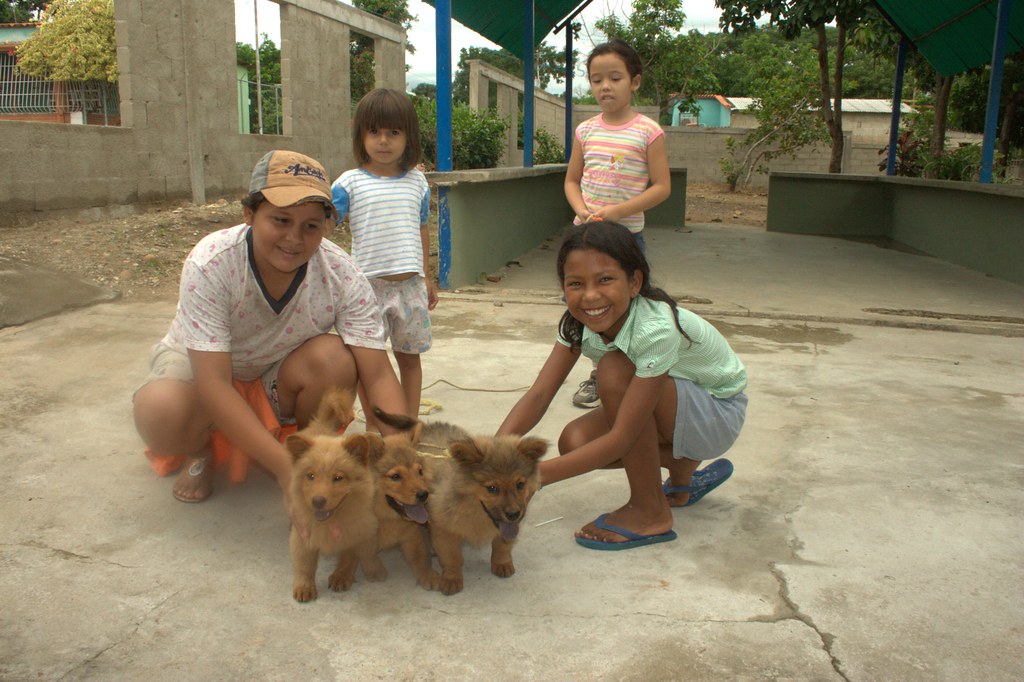 Prayer requests
Prayer requestsSandro Pérez, who was hospitalized with dengue fever just before being confirmed on November 2, is back in the hospital with complications related to the dengue. We have no word on when he will be able to return home.
Also, please pray for our preschool, which has been shut down for the last two weeks. All educational institutions in Barinas and the surrounding area were closed for a week before state and municipal elections across the country November 23. Luz Maria was tapped to help at the voting tables in La Caramuca that Sunday, November 23, 2008. She left our house at 5 a.m. and did not return until after 10 p.m. that evening. Eduardo and I conducted the Sunday service at Corpus Christi that election day with an attendance of 16 people (normally we have 20 to 25, sometimes 30 to 40 for special events). We also hosted our Sunday school in La Caramuca that afternoon.
In our state, Barinas, the big race was for the governor's seat with the main contenders being Adán Chavez, brother of President Hugo Chavez Frias, and Julio César Reyes, former mayor of the city of Barinas. Adán Chavez won by a narrow margin and will succeed his and President Chavez´s father, Hugo de los Reyes Chavez, as governor of Barinas.
But we have been shut down again this week as political tensions continue. Because the governor's race was so close, there have been accusations of voter fraud and threats of protests and counter-protests in the streets.
Because of the unrest, we are thankful for having nearly completed the fence around our property, as now we can allow our guard dog, Peluso (Shaggy), to roam the grounds freely throughout the night. We are grateful for Peluso, a gift from Luz Maria's son, Pedro. Not long ago, Angi Pérez and Deisi Torres proudly showed us three of Peluso's puppies born to the Torres family's female dog.
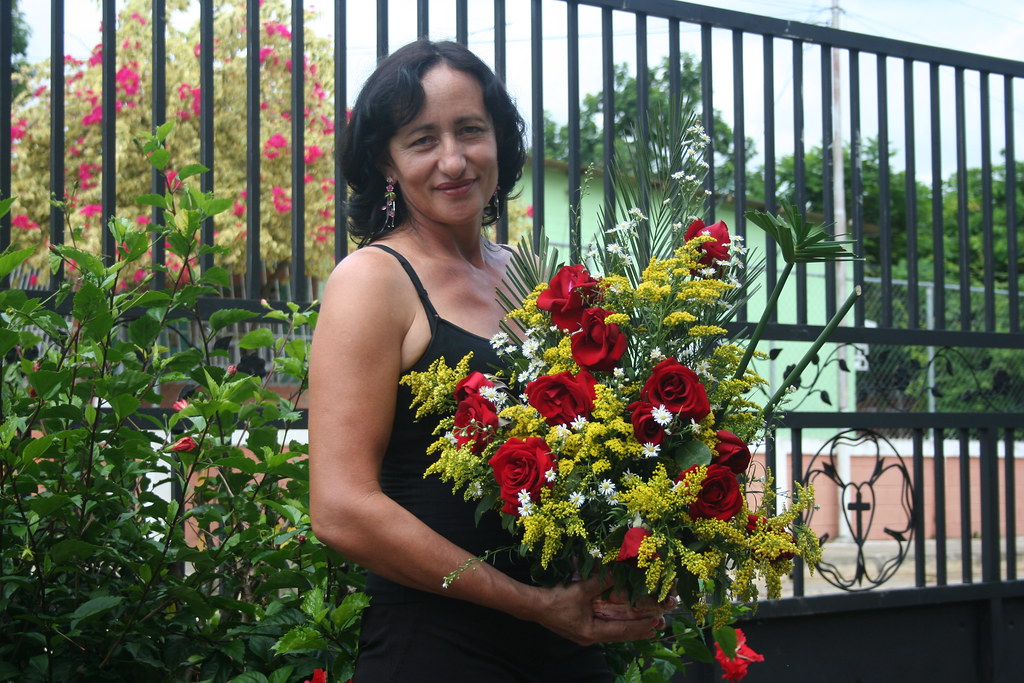
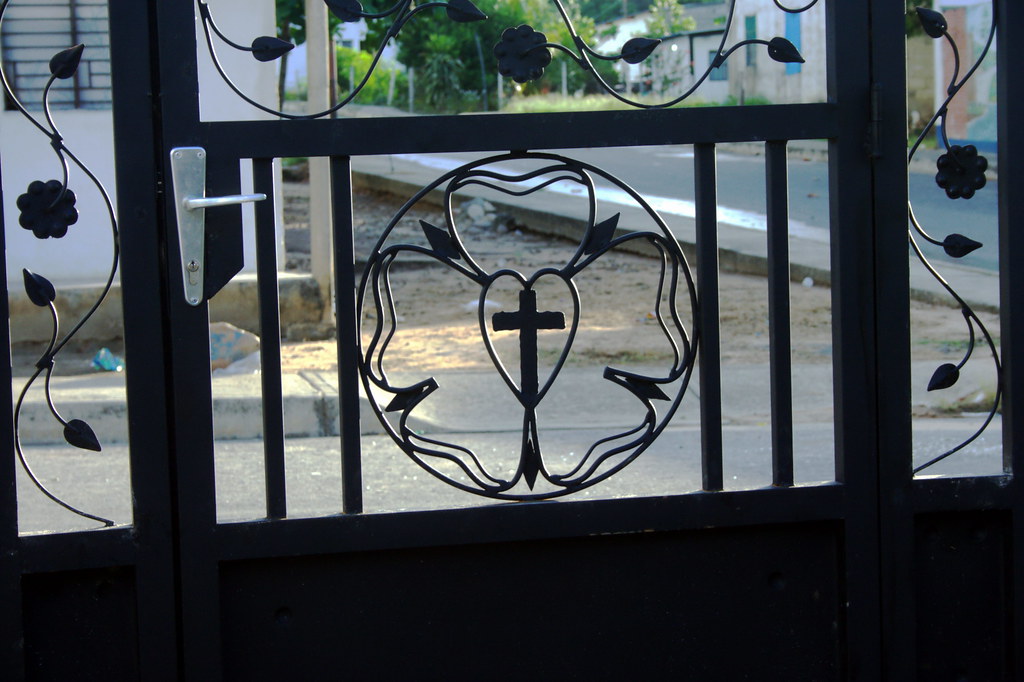
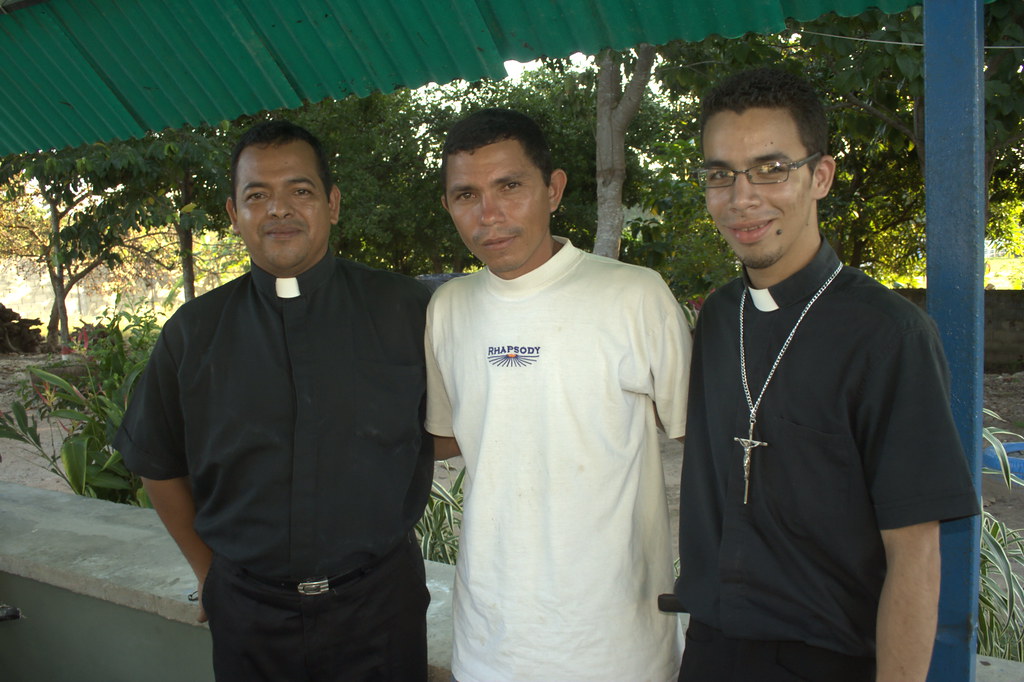 On Sunday, October 19, Pastor Adrian Ventura, president of the Lutheran Church of Venezuela, visited Barinas. That morning at Corpus Christi Lutheran Church, Eduardo played the guitar, I led the opening Service of the Word, and Pastor Adrian preached and administered the sacrament of Holy Communion. His sermon was excellent, but perhaps the most notable aspect of the service was that as it was underway, Venezuela experienced its
On Sunday, October 19, Pastor Adrian Ventura, president of the Lutheran Church of Venezuela, visited Barinas. That morning at Corpus Christi Lutheran Church, Eduardo played the guitar, I led the opening Service of the Word, and Pastor Adrian preached and administered the sacrament of Holy Communion. His sermon was excellent, but perhaps the most notable aspect of the service was that as it was underway, Venezuela experienced its 